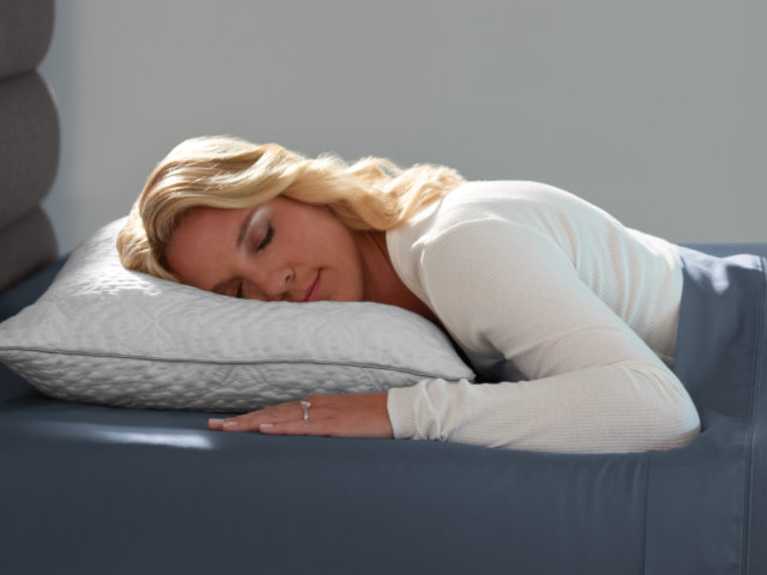
Scientists used to think that our brains switched off when we weren't awake, but it turns out that's not the case. When we sleep, our brains begin a highly orchestrated, intricate dance of complex activities that fuel our waking life.
Throughout the night, we cycle in and out of two stages of sleep: slow wave sleep (SWS) and rapid eye movement (REM).
In fact, the brain is doing four times more work than the heart at night, says Dr. Eric Braverman, director of PATH Medical, a non-profit research organization devoted to brain health.
“Even when the brain is asleep it's going faster than the heart that's keeping you alive," says Braverman.
Here's what your brain is doing behind the sleep scenes:
Making decisions
Deciding to get married or move across the country? The brain can process complex stimuli while asleep, and it uses this information to help you make decisions when you're awake.
Learning
Taking piano lessons or studying a second language? Braverman believes playing an audio book or music throughout the night can help you lock down learning. If you prefer sound instead of silence while falling asleep, try a book, French lessons or nodding off to your favorite classical music.
Making your dreams come true
Daydreaming about ditching your job and opening a food truck, or going back to school for that law degree? Our daily choices are a manifestation of our subconscious beliefs. During sleep we create the lives we want by fantasizing through our dreams. The saying "sleep on it" is good advice when you're contemplating big ideas. Experts also suggest falling asleep while meditating on your deepest desires. The sleeping subconscious is a powerful tool to help you create the life you want.
Flushing out harmful toxins
Been sick more than usual? A series of 2013 studies reported in the National Institute of Health found that the space between brain cells increases during sleep, which allows the brain to flush out toxic molecules that have accumulated during the day—toxins that cause illnesses.
Consolidating memories
Trying to remember what you learned at work today or to remember a romantic evening? Sleep is the key. Traces of episodic memory acquired during the day are initially stored in the hippocampus (a part of the brain responsible for forming memories). But they are progressively transferred to the cortex for long-term memory storage during sleep, according to a study in the Journal of Neuroscience. Skimping on sleep equals forgetfulness.
Staving off dementia. Want to keep your brain cobweb-free well into old age? Use your imagination while you sleep. “There's no question that there's far greater dementia in practical people," says Braverman. Practical people are logical thinkers that never riff much from their daily routine. “Then there are intuitives—idealists striving to be authentic," he says.
Experts think that intuitiveness acts as acetylcholine, a neurotransmitting “on" switch in the brain that opens up imagination, emotion and fantasy. “Intuitives have far less dementia because they give their brain the exercise of imagination," says Braverman.
Braverman notes sleep also helps with pain, anxiety and mood regulation. Plus, it helps build bone and repairs the heart. And sleep keeps your immune system functioning, which is why you become extra tired when you're sick or why logging more sleep can help you get over a cold or flu faster.
So the next time you think of shirking sleep because it's probably not that important, remember all that's really going on behind your closed eyes.
Want even better sleep? Sleepers who routinely use their Sleep Number 360® smart bed technology can get 28 minutes more restful sleep per night — that's up to 170 hours per year!*
Like diet and exercise, quality sleep has a profound impact on our physical, emotional and mental wellbeing. Because no two people sleep the same, Sleep Number 360® smart beds, with SleepIQ® technology, sense your movements and automatically adjust firmness, comfort and support to keep you both sleeping comfortably and provide proven quality sleep. Find your Sleep Number® setting for your best possible night's sleep, and if you own a Sleep Number® bed, log in to your InnerCircle℠ Rewards account to see your exclusive offers, refer friends and more.
*Based on average SleepIQ® data from 8/1/21 – 2/28/22 of sleepers who engaged with their Sleep Number® setting, SleepIQ® data and FlexFit™ smart adjustable base.
ABOUT THE AUTHOR
Jennifer Nelson is a Florida-based health writer who writes about all things sleep hygiene. She writes for The National Sleep Foundation, Phillips, Tom's Guide, Southern Living, Health, AARP and others.